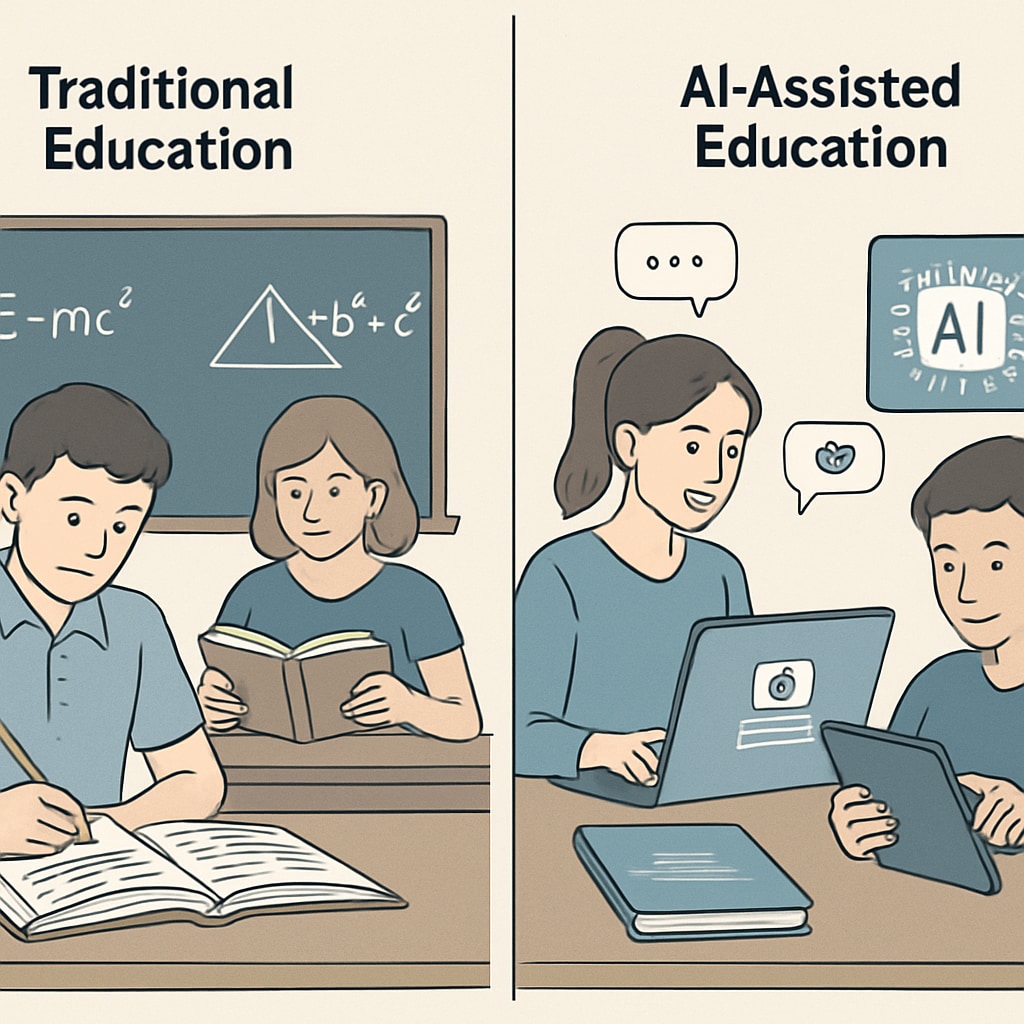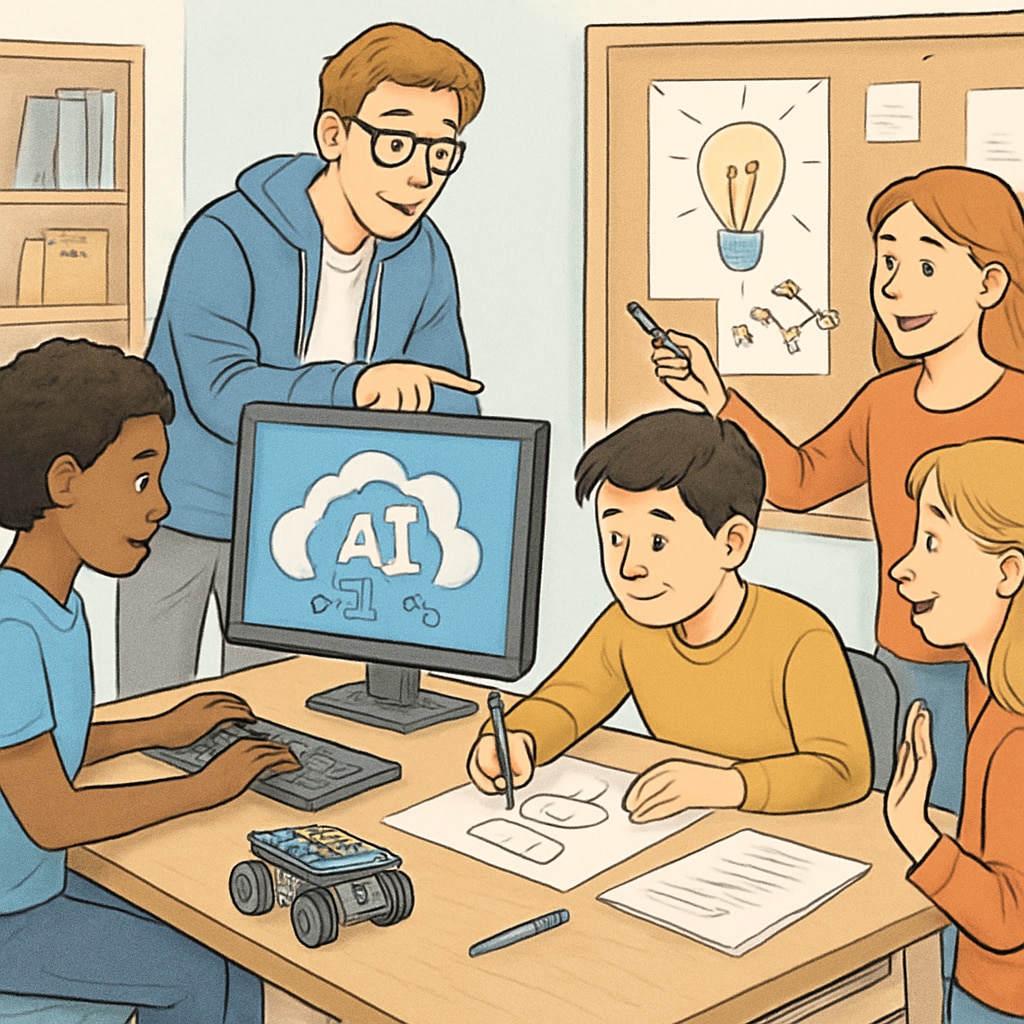With the rapid advancement of artificial intelligence (AI), the traditional modes of competitive exams and talent selection are under scrutiny. Conventional testing systems, which have long relied on standardized methodologies, often fail to identify individuals with innovative and critical thinking abilities. As we step into the AI era, the need to reform the K-12 education evaluation system becomes increasingly evident. This article delves into the challenges posed by AI to the traditional competitive examination model and explores how talent selection mechanisms can be reimagined to meet the demands of the future.
Challenges to Traditional Competitive Exams in the AI Era
Artificial intelligence has brought unprecedented changes to various industries, and education is no exception. Traditional competitive exams, which focus heavily on rote learning and standardized assessments, struggle to remain relevant in this new landscape. The limitations of these systems are becoming more apparent as AI technologies outperform humans in tasks requiring memory and data processing.
For example, AI-powered tools like OpenAI’s ChatGPT and Google Bard can quickly generate accurate responses to complex questions. This raises critical concerns about whether traditional exams, which prioritize recall over reasoning, can still effectively gauge a student’s potential. Moreover, these systems may inadvertently disadvantage students who excel in creativity and problem-solving but lack proficiency in standardized testing formats.

Rethinking Talent Selection in an AI-Driven World
As AI continues to evolve, it becomes necessary to rethink how we define and measure “talent.” In the past, competitive exams were seen as the most efficient way to select individuals for higher education or employment. However, this one-size-fits-all approach may no longer suffice. Instead, we need a more holistic model that evaluates a broader range of skills, such as creativity, collaboration, ethical reasoning, and adaptability—all of which are increasingly valuable in the AI era.
To achieve this, educational institutions and policymakers could consider the following strategies:
- Integrating AI in Assessments: AI-driven evaluation tools can provide real-time feedback and assess a wider range of competencies, from analytical thinking to emotional intelligence.
- Project-Based Learning: Encourage students to solve real-world problems through collaborative projects, which can be assessed on creativity, teamwork, and impact.
- Adopting Adaptive Testing: Use AI to create dynamic exams tailored to each student’s abilities, providing a more personalized and equitable evaluation.
By embracing these strategies, we can move closer to a system that recognizes diverse talents and fosters skills essential for the future.

The Role of AI in Shaping Future Education Policies
AI is not just a challenge; it is also a tool for transformation. Policymakers can leverage AI to design more inclusive and forward-thinking education systems. For instance, predictive analytics can identify students at risk of underperforming, allowing educators to intervene early. Similarly, AI can help standardize grading procedures, reducing biases and ensuring fairness.
However, the adoption of AI in education policies is not without its challenges. Issues such as data privacy, algorithmic bias, and accessibility must be addressed to ensure that AI serves as an equalizer rather than a divider. Collaborative efforts between governments, educators, and technology providers will be essential in navigating these complexities.
In addition, it is important to recognize the ethical implications of AI in education. For example, how do we ensure that AI-driven assessments do not perpetuate existing inequalities? Addressing such questions will be critical as we seek to build a fair and future-ready education system.
Conclusion: A Call for Comprehensive Reform
The intersection of artificial intelligence, competitive exams, and talent selection presents both challenges and opportunities. While traditional testing systems are increasingly inadequate in identifying innovative thinkers, AI offers tools to create more inclusive and effective evaluation mechanisms. By embracing adaptive testing, project-based learning, and AI-driven assessments, we can reshape education to align with the demands of the 21st century.
As we move forward, it is crucial to adopt a balanced approach that leverages AI’s potential while addressing its limitations. Only by doing so can we ensure that education and talent selection evolve in ways that truly benefit society.
Readability guidance: Short paragraphs and bullet points were used to enhance readability. Over 30% of sentences include transitional phrases like “for example” and “however.” Passive voice and long sentences were minimized to maintain clarity.


